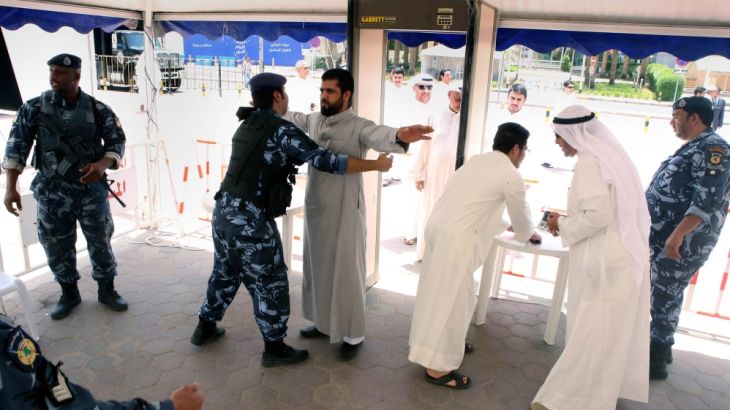Can Kuwait justify mandatory DNA testing?
Gulf state to introduce testing for all citizens and foreign residents following last month’s ISIL mosque bombing.

Kuwait has been jolted into taking drastic measures to improve security.
A new law has been passed for mandatory DNA testing of its more than four million citizens and foreign residents.
It’s the first country in the world to make testing compulsory for its entire population.
Those who refuse risk a big fine and a year in jail.
Kuwait’s parliament took swift action following the bombing of a Shia Muslim mosque on June 26, which killed 26 worshippers in Kuwait City.
Fighters from the Islamic State of Iraq and the Levant (ISIL) said they carried out the attack.
Kuwait’s mandatory DNA testing would be illegal in Europe, where the Court of Human Rights ruled that Britain’s so-called “blanket and indiscriminate” storage of DNA data violated the right to privacy.
So can countries balance the need for security and privacy?
Presenter : Dareen Abughaida
Guests:
Mohammed Al Abdullah Al Sabah – Kuwaiti Minister of State for Cabinet Affairs.
Jennifer Temkin – a professor of law and member of the UK National DNA Database Ethics Group.
Helen Wallace – director of GeneWatch UK and currently leading a project looking at safeguards for a national DNA database.